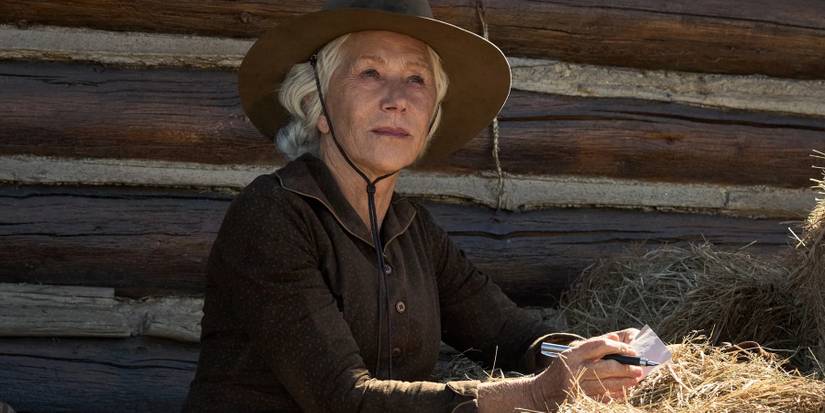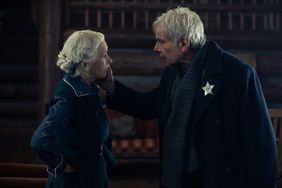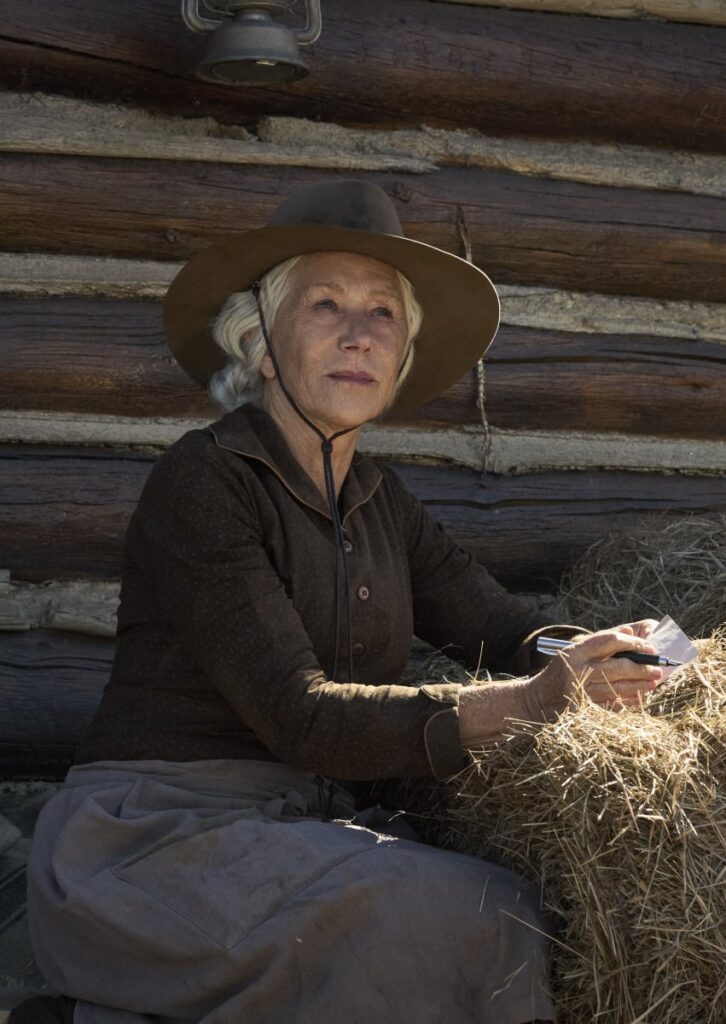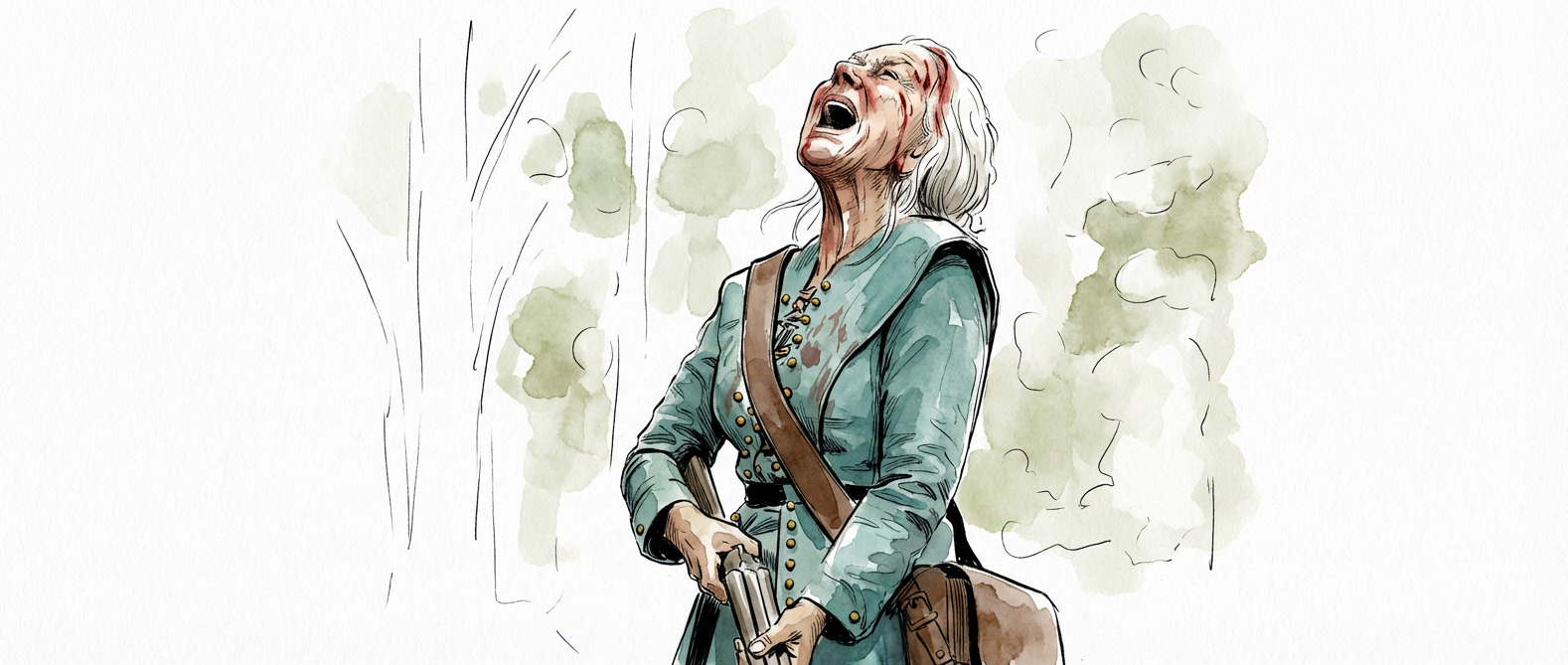The Anachronism of Grace: Redefining the Western Matriarch
In the canon of the American Western, the matriarch has historically occupied a space of silent endurance. She is the bonneted figure on the porch, the moral compass pointing true north while the men navigate the bloody moral gray of the frontier. She is often a victim or a spectator, her agency limited to the domestic sphere. Taylor Sheridan’s Yellowstone universe has consistently sought to shatter these archetypes, but nowhere is the subversion more complete, or more artistically profound, than in the character of Cara Dutton in 1923.
Portrayed by the titan of stage and screen, Dame Helen Mirren, Cara Dutton is not merely a wife, nor simply a mother figure. She is the operational and emotional spine of the Yellowstone ranch during its most precarious hour. Mirren brings to the role a gravitas that transcends the script, imbuing Cara with a texture that is at once rugged and regal. She is an Irish immigrant in the American West, a woman who has fled one history of starvation and oppression only to carve a kingdom out of another hostile landscape.

To analyze Cara Dutton is to deconstruct the very idea of power in the Sheridan-verse. While the flagship series Yellowstone often equates power with projection—loud arguments, corporate takeovers, and performative cruelty—1923 posits a different thesis through Cara: that true power is the quiet capacity to endure the unbearable and the willingness to do the unthinkable to protect one’s own.
The Diaspora of Survival: The Irish Identity
One cannot understand Cara Dutton without first interrogating her voice. Mirren’s choice to retain a thick, melodic Irish accent is not an affectation; it is a narrative engine. It immediately marks Cara as an outsider, a woman who chose this life rather than one who was simply born into it. The Irish identity in the early 20th century carries with it the genetic memory of the Great Famine, of displacement, and of a resilience forged in the fires of scarcity.
This backstory, though often implied rather than explicitly dramatized, informs every decision Cara makes. When she looks out over the drought-stricken plains of Montana, she sees the specter of the hunger she likely left behind in Ireland. It explains her ferocity. For the native-born rancher, the land is a birthright; for the immigrant Cara, the land is a sanctuary that was fought for and won. Her survival instinct is not just about preserving wealth; it is about preventing a return to the void.
Mirren plays this cultural duality with exquisite subtlety. In moments of peace, her accent lilts with the warmth of the old country, providing a stark auditory contrast to the flat, harsh American vowels of the cowboys. But in moments of command, that same accent turns into iron. It reminds the men around her—and the audience—that she comes from a lineage of survivors who withstood empires. She brings the "Old World" steel to the "New World" chaos, creating a matriarch who is intellectually and spiritually older than the country she inhabits.
Ballistics and Bloodlines: The Capacity for Violence
The audience’s introduction to Cara Dutton is a masterclass in subverting expectations. We do not meet her baking bread or mending clothes. We meet her in the aftermath of a brutal skirmish, hunting a man who has attacked her family. The imagery is striking: an older woman in period dress, moving through the wilderness not with fear, but with the predatory focus of a lioness.

When she raises the shotgun and pulls the trigger, executing the injured trespasser, the act is devoid of the sadistic glee that often characterizes the violence of her descendant, Beth Dutton. Mirren plays the moment with a terrifying pragmatism. After the shot rings out, she lets out a scream—not of triumph, but of frustration and released adrenaline. It is a primal, visceral sound that acknowledges the horror of what she has had to do, even as it affirms her willingness to do it.
This scene establishes the central tension of her character: the coexistence of steel and grace. Cara does not seek violence; she views it as a failure of civilization. Yet, she recognizes that in the lawless vacuum of 1923 Montana, she is the law. When Jacob is incapacitated later in the series, Cara steps into the void without hesitation. She attends the Livestock Association meetings, staring down a room full of men who view her as an anomaly. She does not try to emulate masculine posturing. Instead, she wields her matriarchy like a weapon, shaming the men for their pettiness and commanding their respect through sheer force of will. She proves that the hand that rocks the cradle is equally capable of pulling the trigger.
A Partnership of Granite: Cara and Jacob
The relationship between Cara and Jacob Dutton, played by Harrison Ford, serves as the emotional anchor of the series. In a franchise rife with toxic relationships, broken marriages, and manipulative dynamics, Cara and Jacob stand as a monument to a healthy, enduring partnership. It is a marriage of equals, forged in the crucible of the frontier.

Mirren and Ford, reuniting decades after The Mosquito Coast, share a chemistry that feels lived-in. There is a shorthand to their interactions—a look, a touch, a shared silence—that conveys forty years of history. Unlike the fiery, often destructive passion of Rip and Beth in Yellowstone, the love between Cara and Jacob is a quiet, steady flame. It is the love of two people who have buried children, fought wars, and built a life from dust.
Cara is the only person who can check Jacob’s hubris. When Harrison Ford’s Jacob rages against the changing world, it is Mirren’s Cara who grounds him. She is not his subordinate; she is his conscience. In the scenes where she tends to his wounds after the ambush, the vulnerability is palpable. We see Cara not just as a protector, but as a healer. She washes the blood from his body with a tenderness that is heartbreaking, a scene that juxtaposes the frailty of the human body with the resilience of the human spirit.
This dynamic flips the script on the "stoic cowboy and his long-suffering wife" trope. Jacob relies on Cara’s strength as much as she relies on his protection. When he is weak, she becomes the face of the ranch. She manages the finances, the politics, and the personnel. It is a portrayal of marriage that suggests the West was not won by men alone, but by partnerships that functioned as a single, indomitable organism.
The Epistolary Soul: Vulnerability in Ink
If the shotgun represents Cara’s steel, the letters to Spencer represent her grace. Throughout the series, Cara’s voiceovers serve as the narrative connective tissue, bridging the vast geographic gap between the snowy peaks of Montana and the sun-drenched savannas of Africa where her nephew, Spencer, resides.

In these scenes, Mirren strips away the armor of the matriarch to reveal a woman defined by longing. The act of writing becomes a sacred ritual, a desperate attempt to maintain a tether to the boy she raised as a son. Her words are poetic, filled with the ache of separation and the terror of the encroaching modern world. "I am writing this slowly," she says, "because I know you read slowly." It is a line delivered with such maternal affection that it humanizes the mythic scale of the story.
These letters reveal the burden of her stoicism. To the world, she is the Iron Lady of the Yellowstone; to Spencer, she is simply "Aunt Cara," vulnerable and afraid. This epistolary device allows the audience to access her interiority in a way that dialogue with other characters does not. We hear her fears about the drought, her grief over the violence, and her wavering hope. It elevates Cara from a character in a Western to the author of the family’s history. She is the keeper of the lore, the one who understands that if the family dies, the story dies with them.
The Matriarchal Continuum: A Legacy Defined
To fully appreciate Helen Mirren’s Cara, one must place her within the lineage of Dutton women. She bridges the gap between the wild, ethereal spirit of Elsa Dutton (1883) and the modern, scorched-earth warrior Beth Dutton (Yellowstone).
Elsa was the spirit of the land, a girl who fell in love with the wildness of the West. Beth is the product of its corruption, a woman who fights with rage and cynicism. Cara is the synthesis. She possesses Elsa’s romantic connection to the land and family, but she has tempered it with the pragmatism required to survive. She has the capacity for violence that defines Beth, but she lacks Beth’s self-destructive nihilism.
Cara Dutton fights not because she hates the world, but because she loves her family. Her ruthlessness is always in service of preservation, never destruction. Helen Mirren’s performance captures this nuance perfectly. She plays Cara with a dignity that refuses to be eroded by the brutality of her circumstances. In doing so, she has created a character that stands tall in the pantheon of television history—an Iron Irish Rose who proves that in the savage history of the West, the strongest figures were often the ones who never wore a badge.
